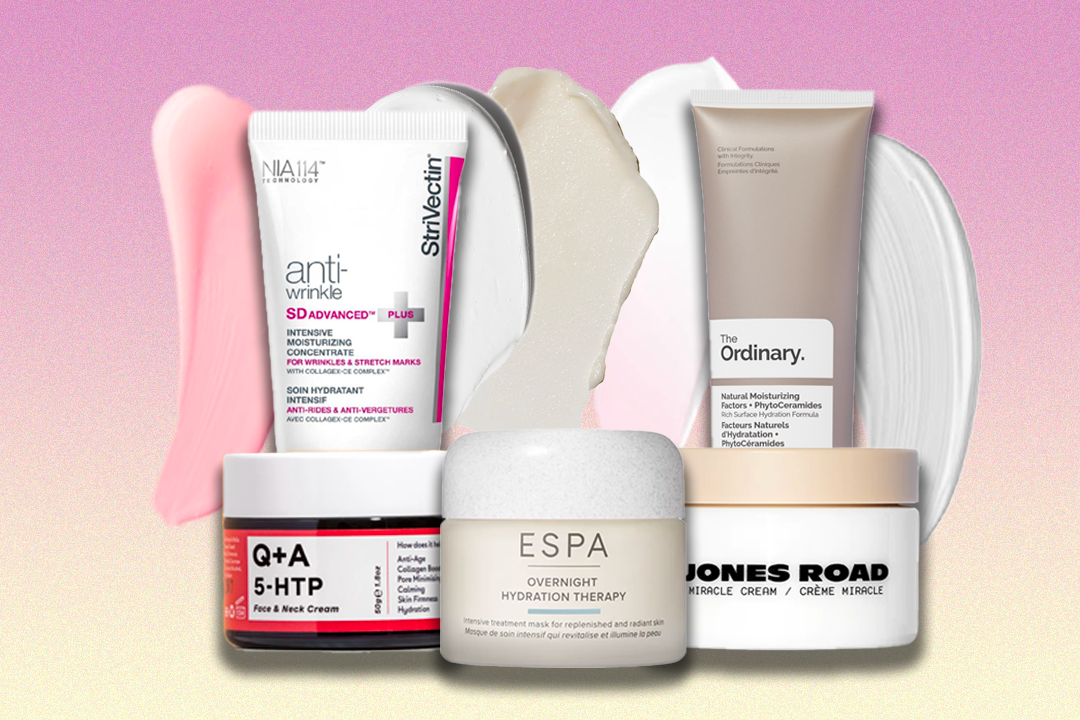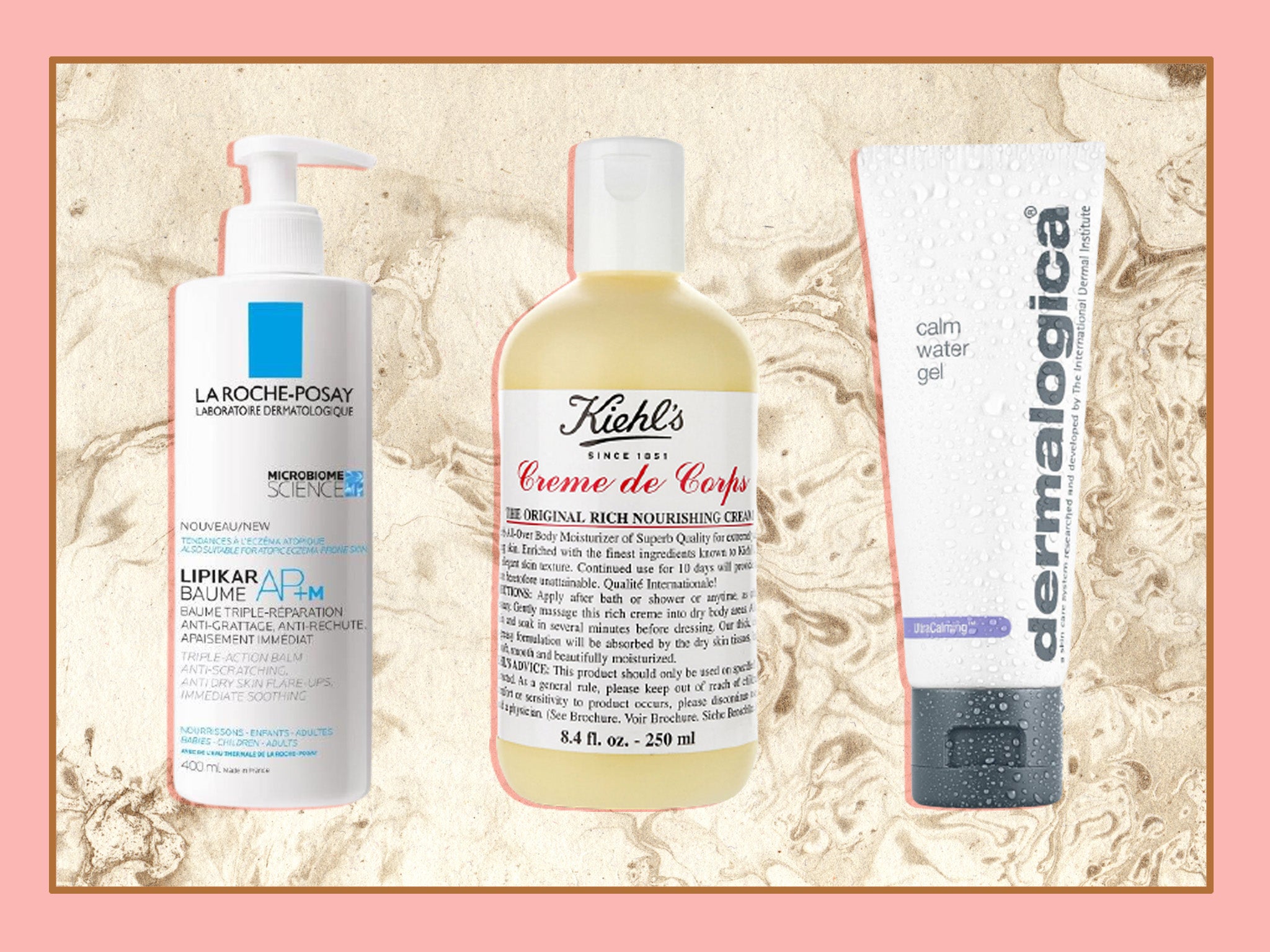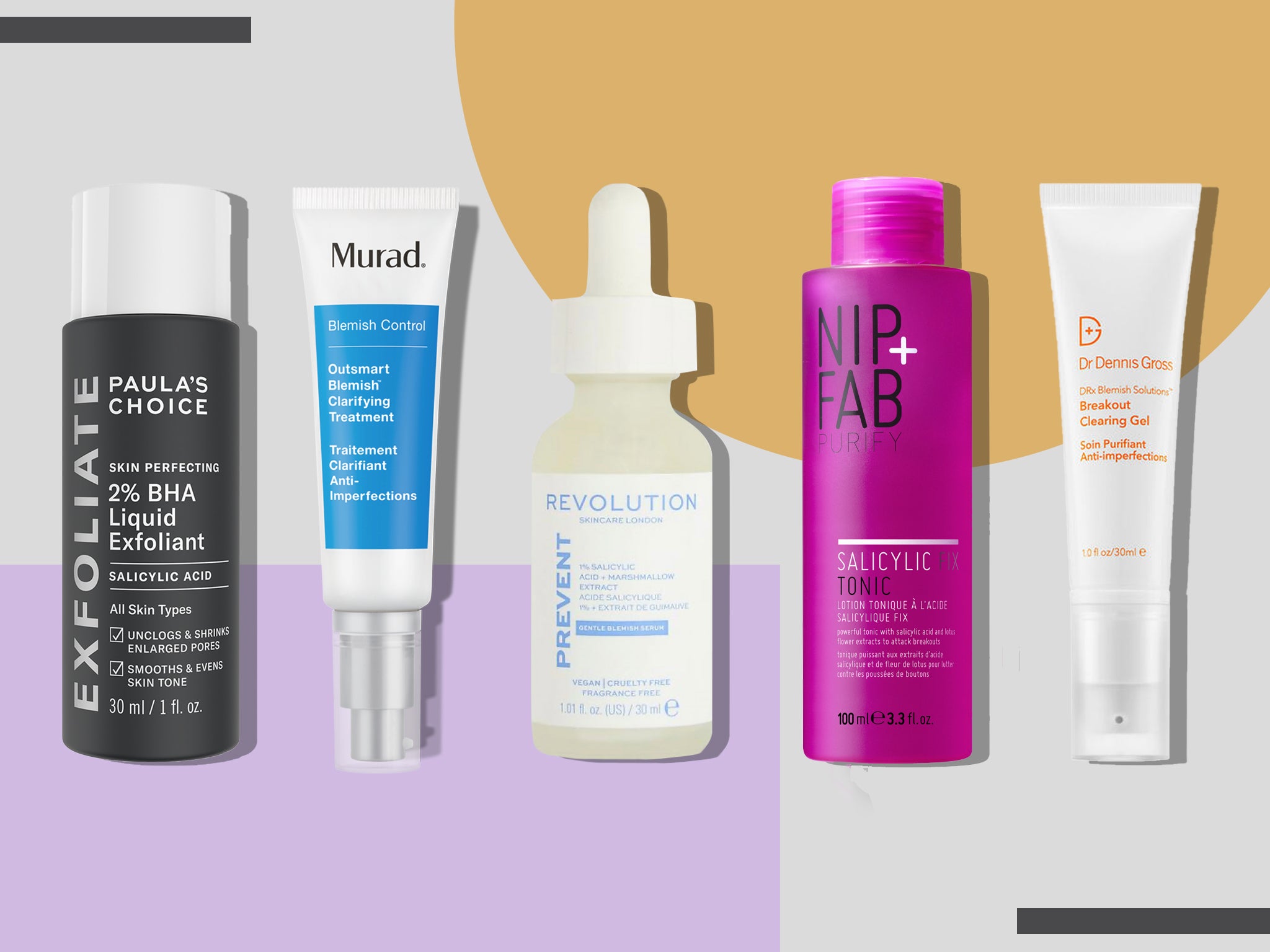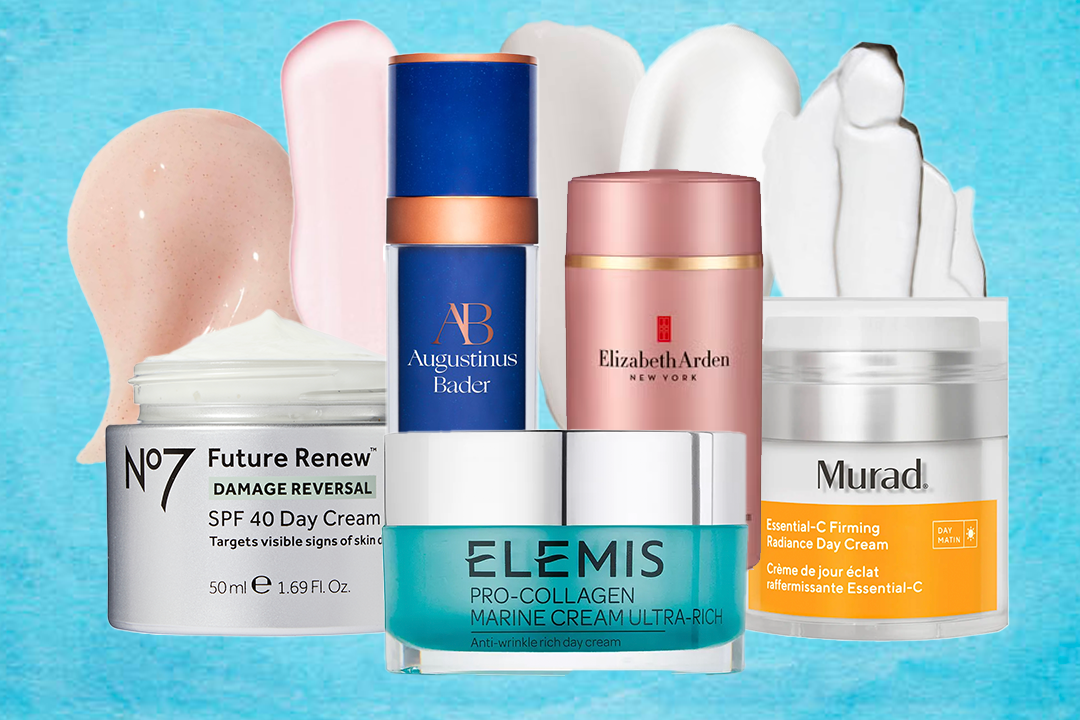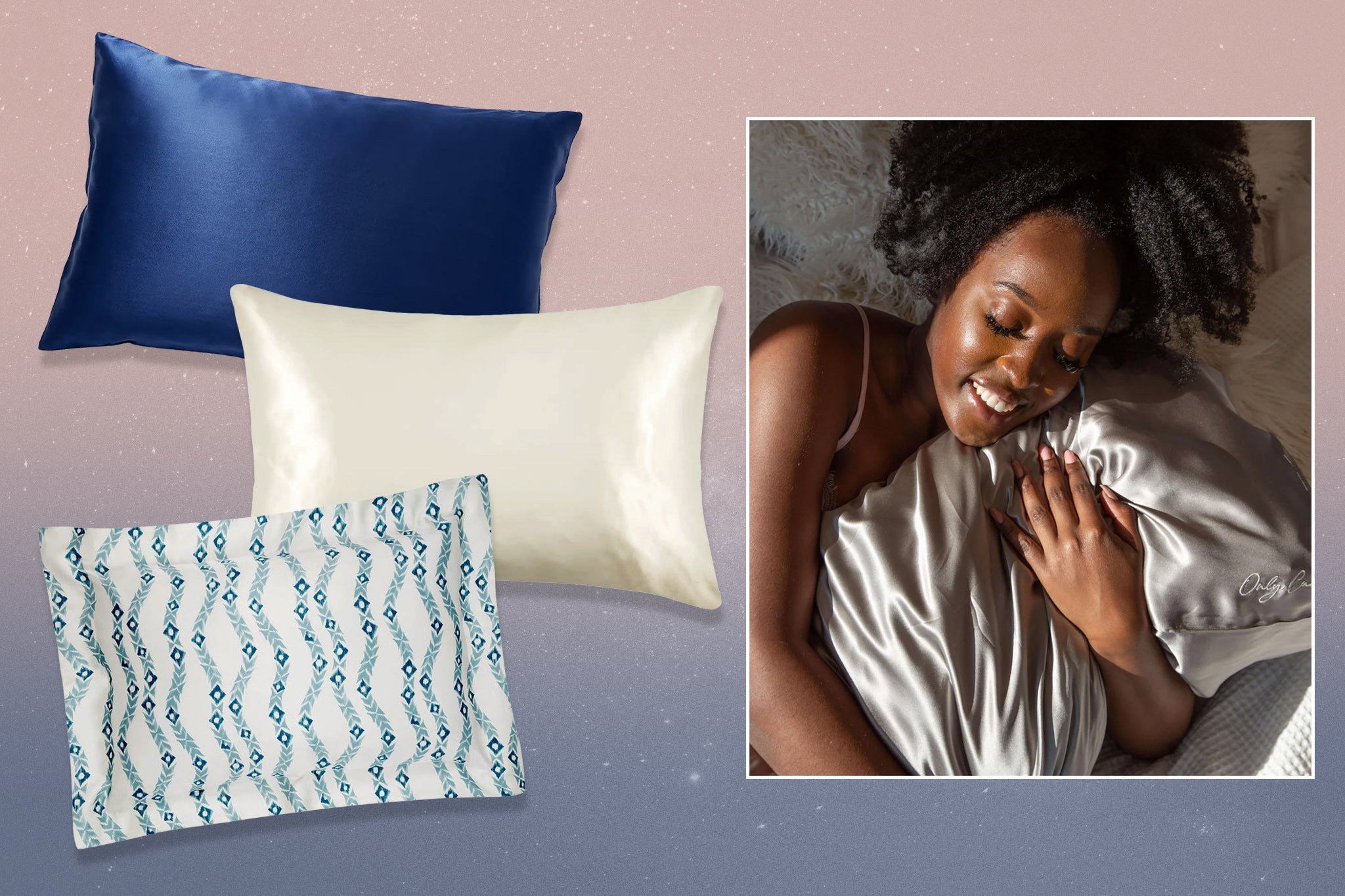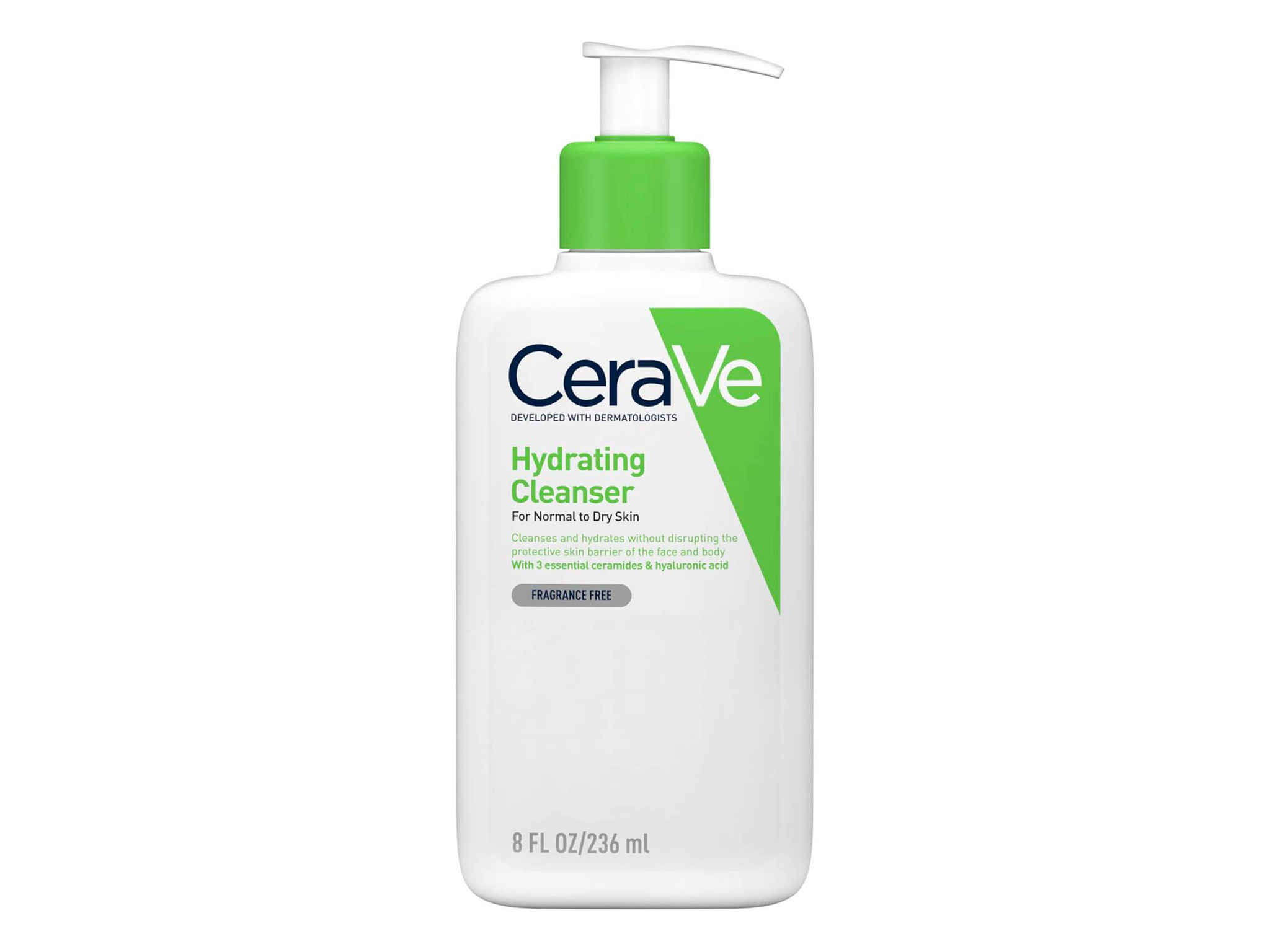
The Independent's journalism is supported by our readers. When you purchase through links on our site, we may earn commission. Why trust us?
The best perioral dermatitis treatments I swear by, from moisturisers to cleansers
Beauty expert Emma-Jade Stoddart went back to basics to find this winning skincare routine
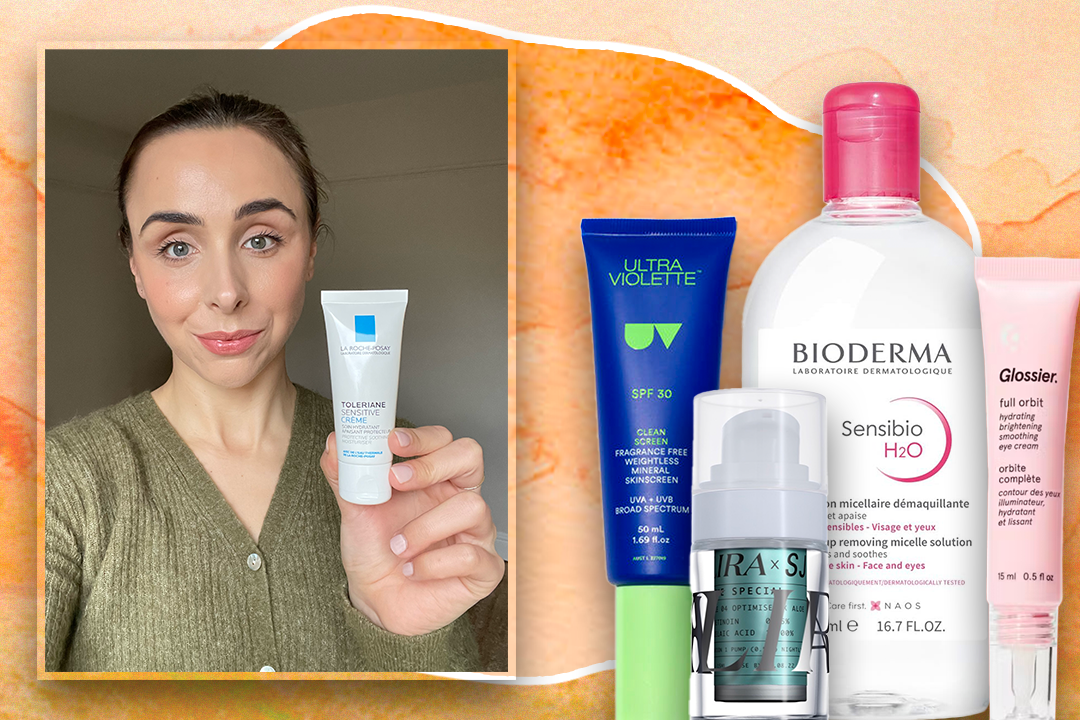

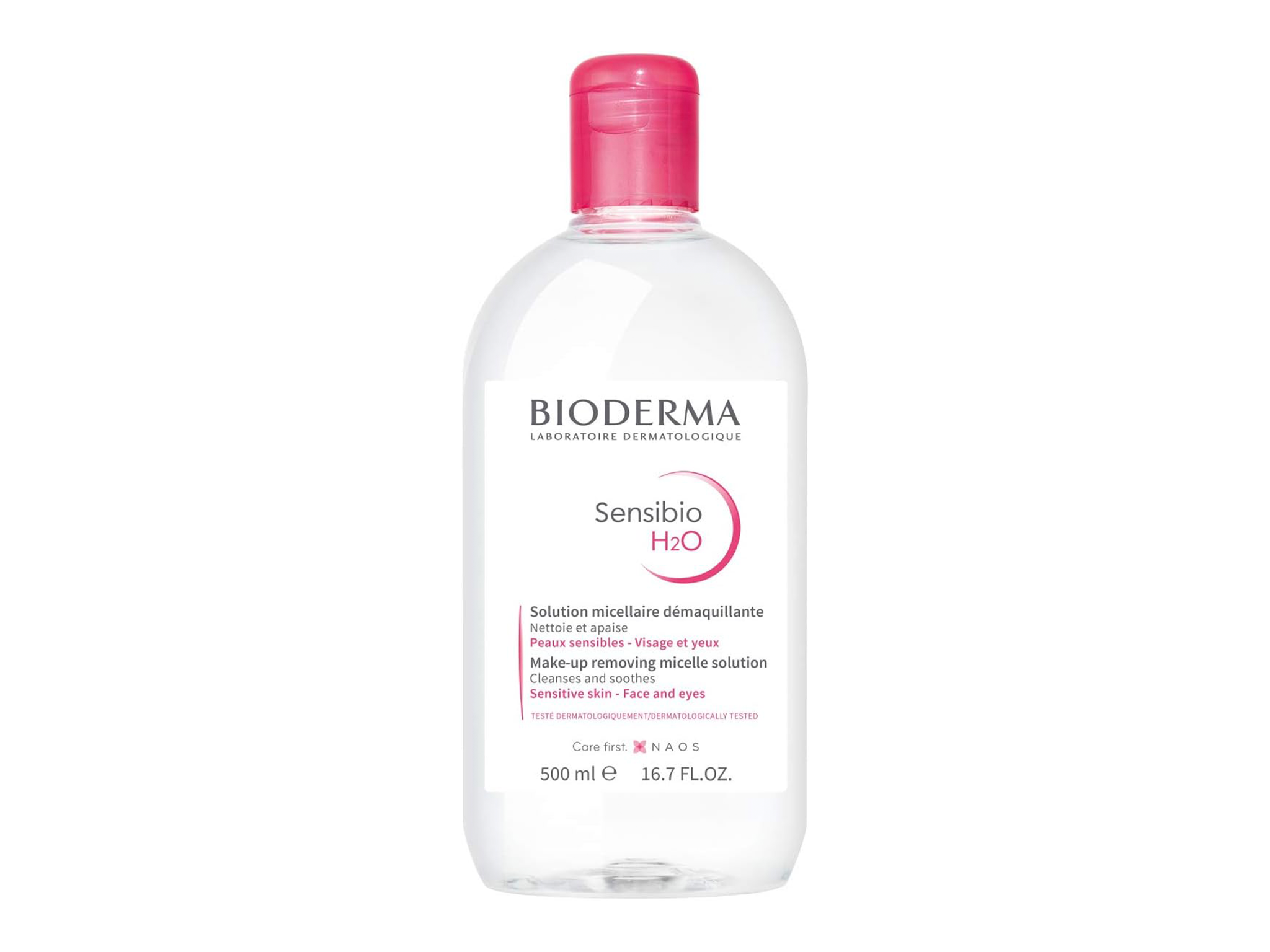
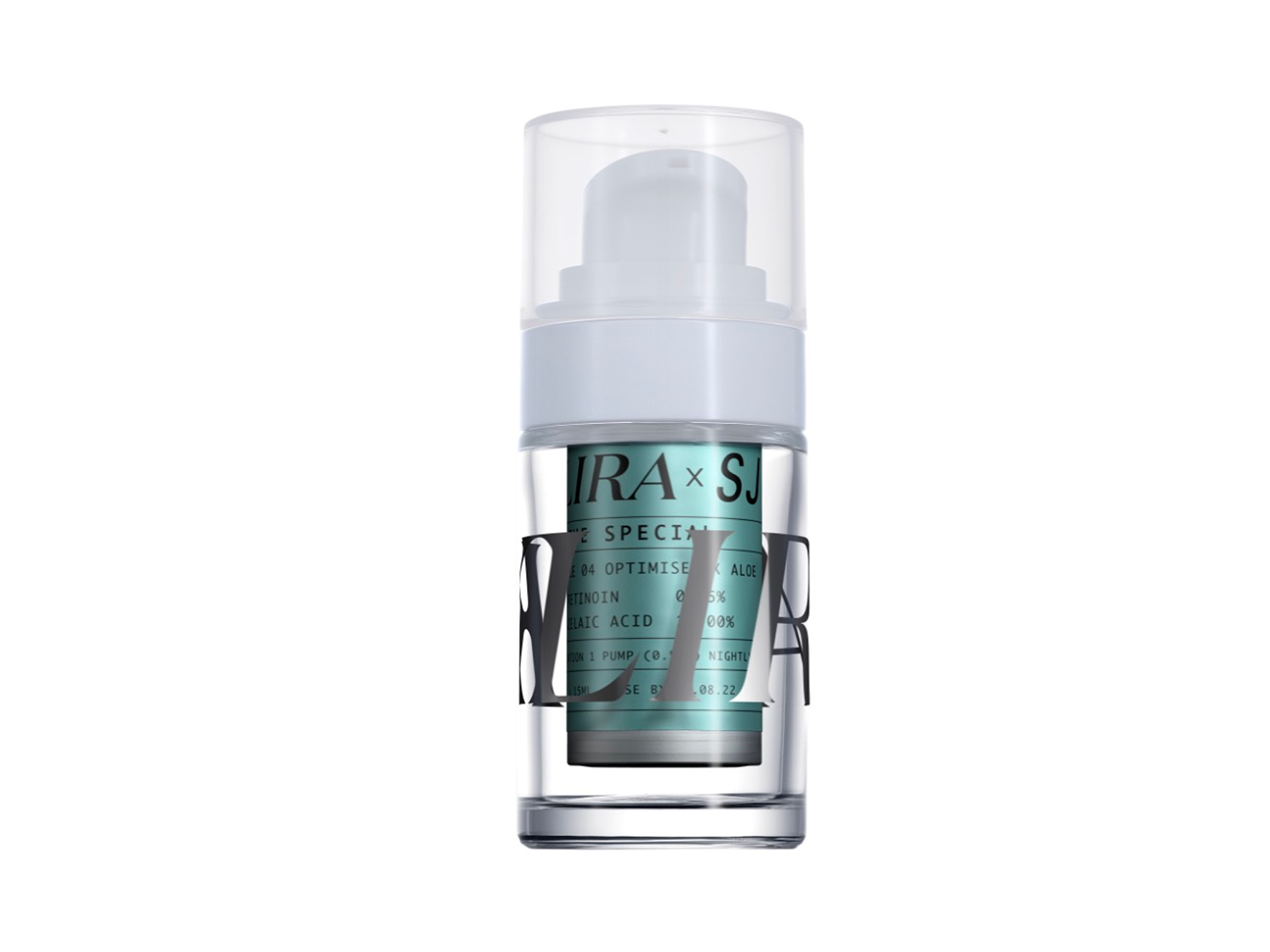
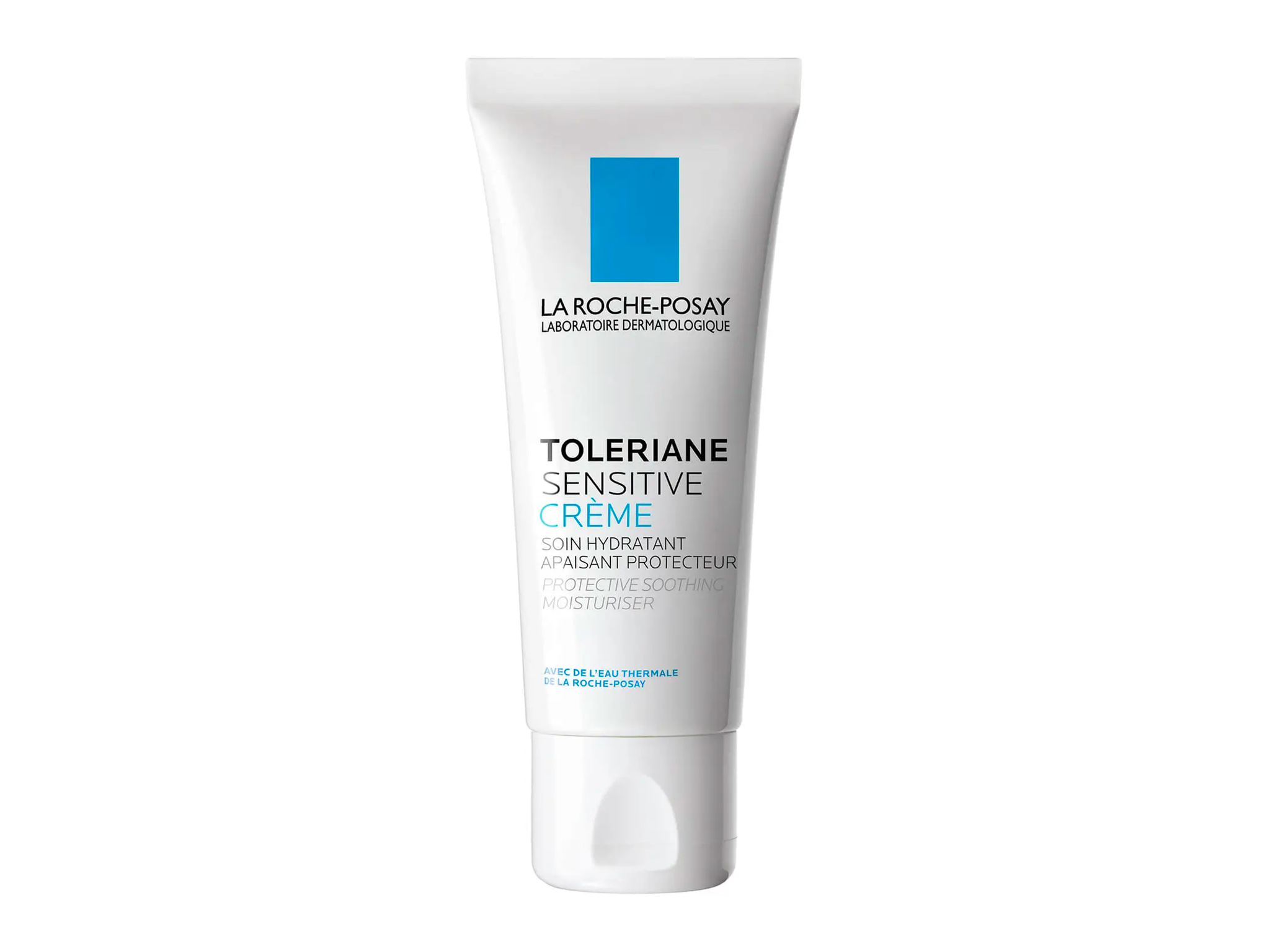
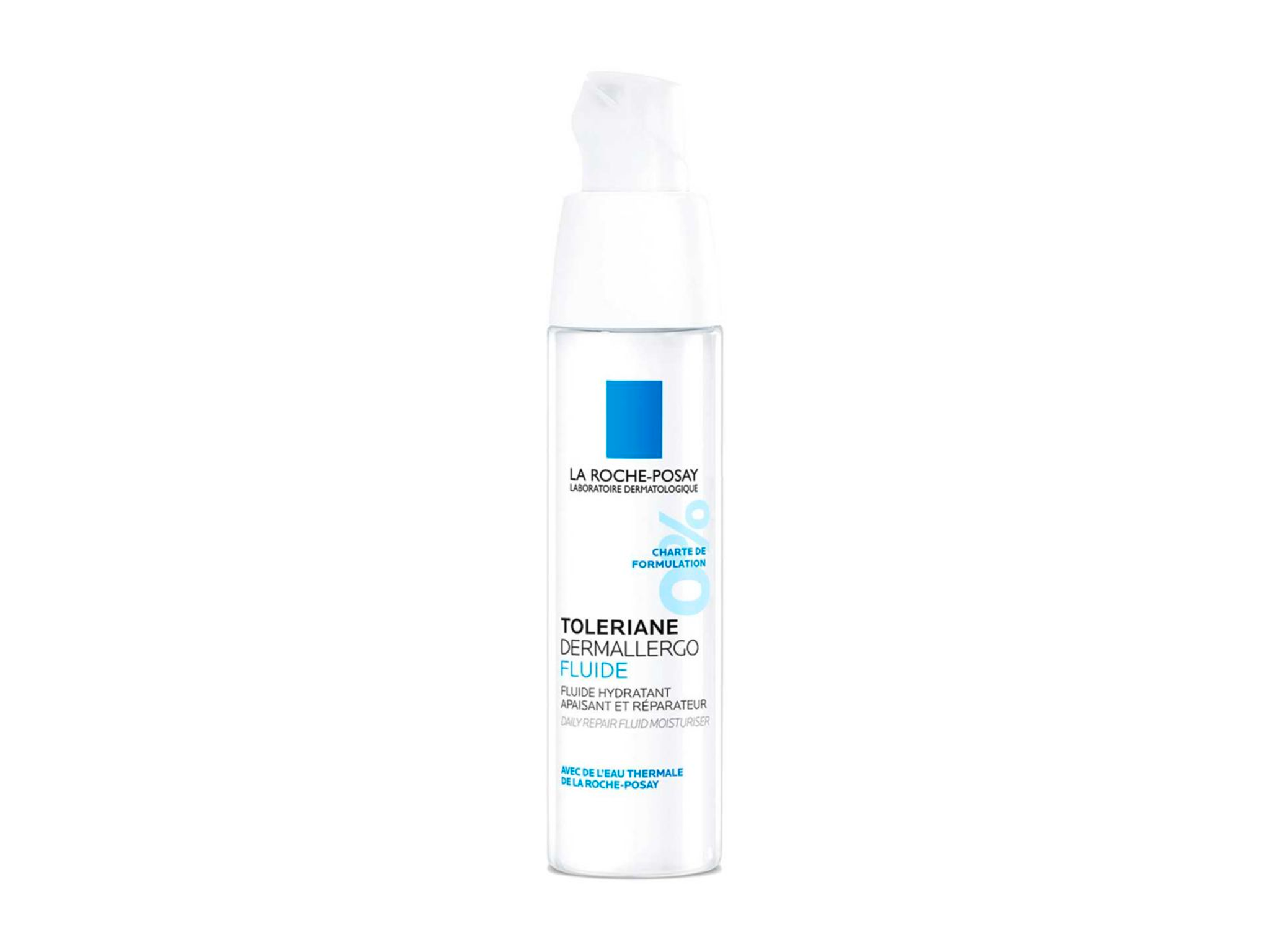
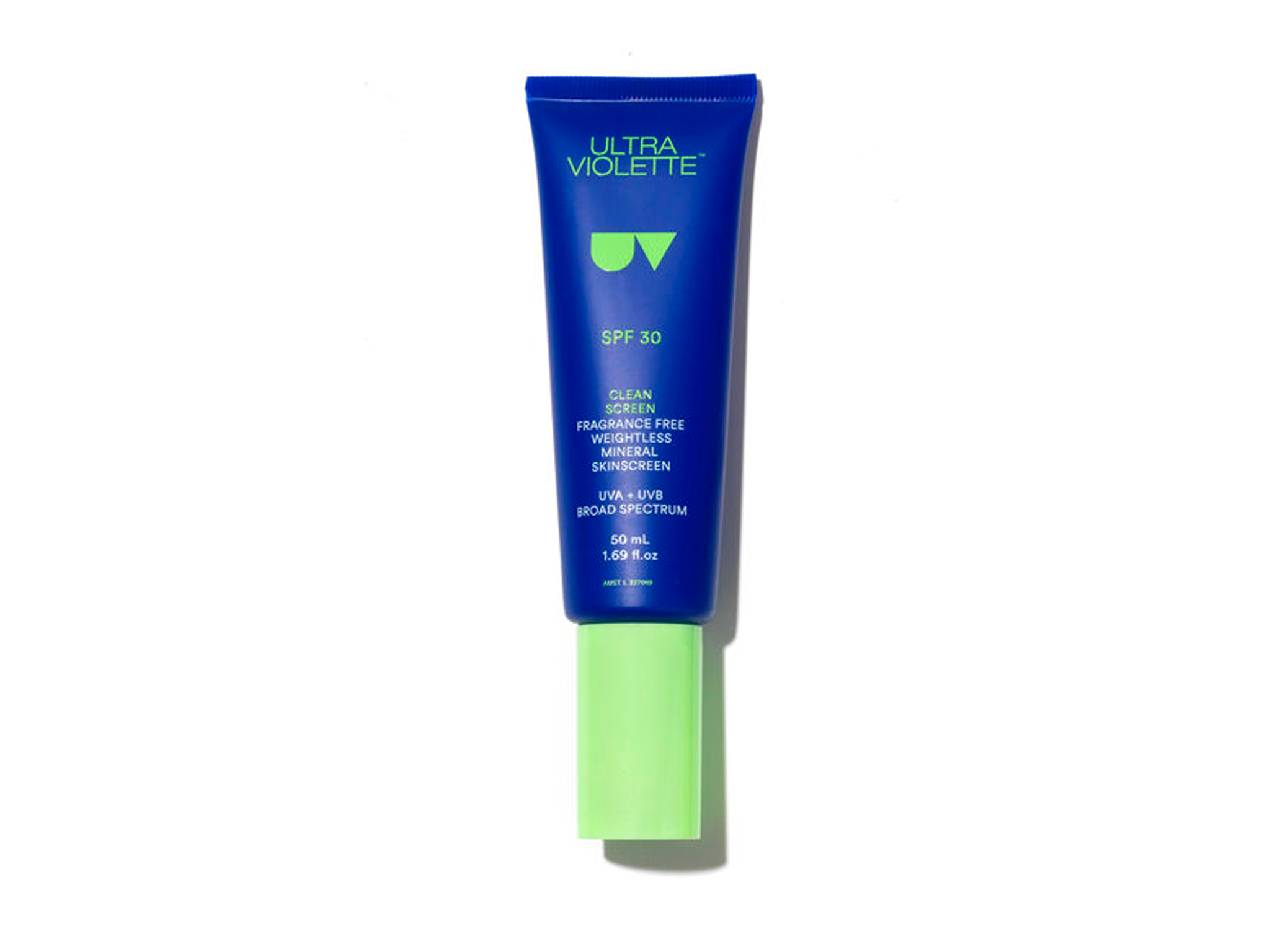
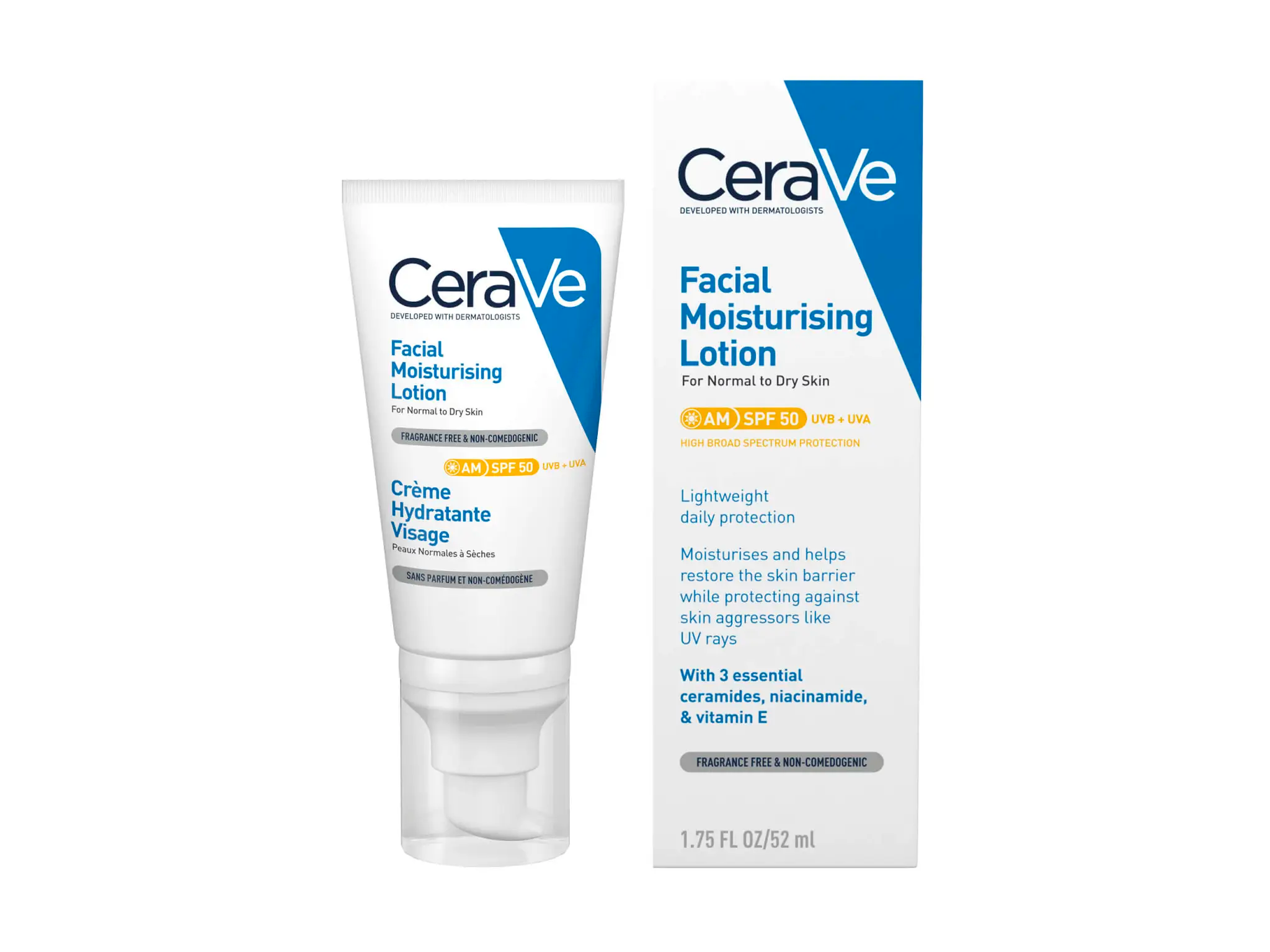 Best moisturiser with SPFCeraVe AM facial moisturising lotion SPF 50 for normal to dry skinRead review£14
Best moisturiser with SPFCeraVe AM facial moisturising lotion SPF 50 for normal to dry skinRead review£14
My skin had always behaved pretty well. I’d get the odd hormonal breakout and occasional dryness (typically brought on by extreme weather) but, usually, it was clear, even in texture, with a hint of glow. That was until about two years ago when I was diagnosed with something called perioral dermatitis. “Perioral dermatitis is a rash that occurs around the mouth and the eyes,” explains Dr Alexis Granite, specialist dermatologist. “It is most common in females and often appears as flesh-coloured or red bumps that may itch or burn,” she adds.
For me, the rash appeared almost overnight – one day I had clear skin and the next, it was red, inflamed and bumpy. At the time, I assumed I was dealing with a case of adult acne, and thought I could tackle the problem head-on with my stash of exfoliating acids, vitamin C serums and spot treatments. That was the wrong approach to take entirely, as these products only made matters worse. “It’s best to simplify your routine at home when suffering from perioral dermatitis,” and “lay off potentially irritating actives”, advises Dr Granite.
As my skin became increasingly inflamed, I decided to consult a professional dermatologist, who, after a quick analysis, confirmed the spread of pustules around my mouth and nose was indeed perioral dermatitis.
I was prescribed an oral antibiotic and topical treatment, which together worked like a dream and cleared up the rash in just over two weeks. But, as Dr Granite points out, the cause of this skin condition is not always clear cut and it tends to be recurring: “I see this quite often in beauty journalists who have tried many products over the years.” Guilty.
While my skin did clear up initially, I have since had flare-ups that have led me to find the products that help keep my inflammation under control, and it’s fair to say I’ve become an expert on the matter. Not only swotting up on the symptoms, causes and treatment options but also testing countless products over the years, to find the ones that’ll help keep my perioral dermatitis at bay.
How I tested the best skincare for perioral dermatitis
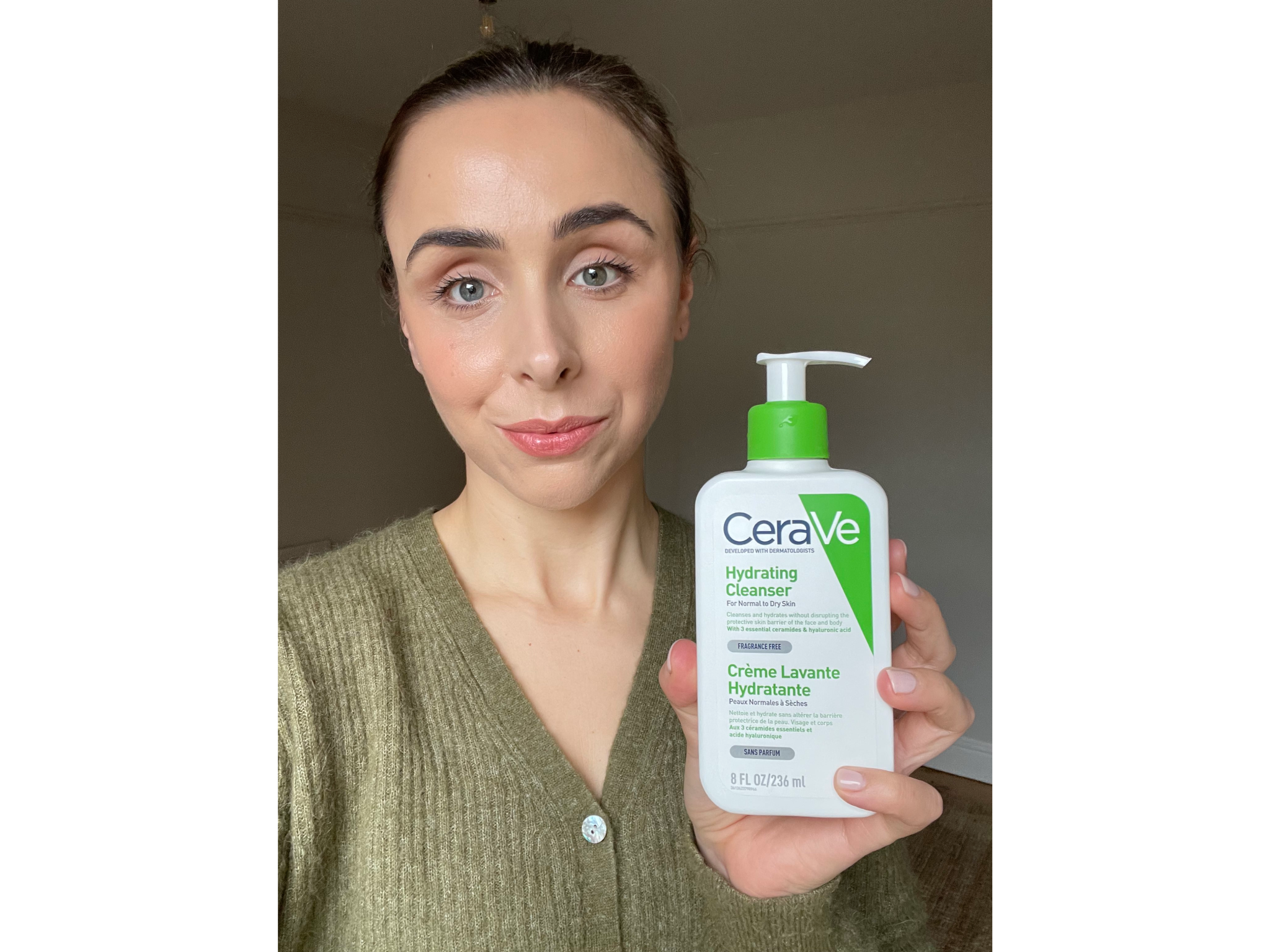
In order to find this winning skincare routine, I looked for gentle formulations that have been specifically made with sensitive skin in mind. My motto is this: the simpler the formulation, the better. I prefer products free from known irritants, including fragrances, and those that aren’t jam-packed with preservatives. In terms of texture, I look for lightweight serums and creams that aren’t too rich or thick. I avoid chemical SPFs (mineral sunscreens are more suited to sensitive skin) and steer clear of products containing potentially irritating actives, such as vitamin C.
Below are the tried and tested products I turn to time and time again, as they calm and soothe my skin, without triggering a dermatitis breakout. Using these same products for more than three months, I’m confident in these gentle formulations.
The best skincare products for perioral dermatitis 2024 are:
- Best cleanser for morning and night – CeraVe hydrating cleanser: £12.49, Amazon.co.uk
- Best for double cleansing – Bioderma sensibio cleansing micellar water sensitive skin: £13.38, Amazon.co.uk
- Best tailor-made night serum – Klira night serum: £49, Klira.skin
- Best moisturiser for morning and night – La Roche-Posay toleriane sensitive moisturiser: £17.99, Amazon.co.uk
CeraVe hydrating cleanser

- Best: For cleansing morning and night
- Key ingredients: Essential ceramides: 1, 3 and 6-11
- Size: 236ml
- Type: Lightweight gel
- Why we love it
- Gentle
- Hydrating
- Fragrance-free
A key step in any skincare routine, cleanser is an essential product that most of us use twice or even thrice a day (depending on whether you like to double cleanse at night). While we’re spoilt for choice in this skincare category, if you have inflamed or sensitive skin, it’s best to opt for a very mild formula. My go-to? CeraVe’s hydrating cleanser.
Truly a godsend for my perioral dermatitis, this gentle cleanser removes all make-up and grime without stripping skin of essential moisture – thanks to its hydrating formula, which is loaded with barrier-boosting ceramides. I use it morning and night, even when I’m not having a flare-up because it’s that good. Incredibly lightweight, the formula rinses off with ease and leaves skin feeling refreshed and hydrated. It’s also fragrance-free and affordable. Tick, tick, tick.
Bioderma sensibio cleansing micellar water, sensitive skin

- Best: For double cleansing
- Key ingredients: Water, cucumber extract
- Size: 500ml
- Type: Micellar water
- Why we love it
- Fragrance-free
- Alcohol-free
- Hypoallergenic
- Take note
- More expensive than some other micellar waters on the market
Micellar water is a great product to have on standby for whenever you want to refresh your skin without the need to rinse (aka those days when you don’t want to make the commute from bedroom to bathroom). Brimming with tiny cleansing bubbles called ‘micelles’, these bubbles trap and dissolve dirt and make-up – lifting them off your skin and onto a cotton pad.
Occasionally, if I’m wearing more make-up than usual, I’ll use micellar water first before cleansing with CeraVe’s hydrating cleanser. Bioderma’s sensibio cleansing micellar water for sensitive skin is free from fragrance and alcohol. The gentle formula takes off the day while soothing skin with a blend of conditioning cucumber extract and mannitol (a moisture magnet).
While micellar water is good for removing surface-level grime and make-up, I prefer to follow this up with a second cleanse for a deeper clean. That said, this particular formula removes most of my make-up with ease and leaves my skin feeling suitably fresh.
Klira night serum

- Best: Tailor-made night serum
- Key ingredients: Bespoke formulation
- Size: Four weeks’ worth
- Type: Lightweight serum
- Why we love it
- Bespoke formula
- Made with your specific skin needs in mind
- Take note
- Monthly subscription may not suit everyone
After my most recent perioral dermatitis flare-up, I decided to give a personalised skincare brand a whirl. I was intrigued to see if a bespoke formula could indeed calm my inflammation.
Turning to Klira (founded by dermatologist Dr Emma Craythorne), I filled in a lengthy questionnaire (51 questions in total – spanning everything from lifestyle habits to skin concerns), before uploading images of my skin. The brand’s dermatology experts reviewed my answers before creating my Klira special – a night-time serum, laced with prescription-strength ingredients.
My bespoke formula contains 0.01 per cent tretinoin (despite being a low dose, tretinoin may be an irritant to some people), 15 per cent azelaic acid and one per cent ivermectin, alongside a nourishing, hydrating base. I use it post-cleanse, before moisturiser, every single night and, after eight weeks of use, I’ve been blown away by the results. Not only has my perioral dermatitis completely calmed down, but my overall skin texture and tone have drastically improved. My skin looks smooth, glowy and healthy. While this is an expensive option (from £49 per month), it enables me to simplify my skincare routine – using just one night-time serum instead of layering different ingredients.
“Whenever I’m curating a “special” that’s going to address perioral dermatitis, I will look at something with limited preservatives, that has a light consistency and includes azelaic acid and tretinoin,” says Dr Craythorne.
La Roche-Posay toleriane sensitive moisturiser

- Best: Moisturiser for morning and night
- Key ingredients: Spring water, glycerin, ceramides, vitamin B3
- Size: 40ml
- Type: Light cream
- Why we love it
- Suitable for sensitive skin
- Dermatologist-tested
- Approved by Allergy UK
- Take note
- May be too thick for some
According to Dr Craythorne, light layers are best for perioral dermatitis. “Go for a very bland emollient that doesn’t have any preservatives or additional additives – if it’s a gel or a light liquid, that’s much better than a heavy cream,” she says.
I highly recommend the products from La Roche-Posay’s toleriane range. Specifically designed with sensitive skin in mind, these products are calming, soothing and non-irritating. For both morning and night, I’m currently using the toleriane sensitive crème, a probiotic moisturiser that repairs and protects the skin’s barrier with moisturising glycerin, ceramides and vitamin B3. While it’s creamy in consistency, I find it’s extremely lightweight and sinks into the skin speedily without leaving behind a greasy residue. If you do find the consistency is too thick, try the toleriane dermallergo fluide (listed below) instead, as it has a light, liquid texture.
La Roche-Posay toleriane dermallergo fluide

- Best: Lightweight moisturiser
- Key ingredients: Spring water, glycerin, squalane, shea butter
- Size: 40ml
- Type: Lightweight liquid
- Why we love it
- Suitable for sensitive skin
- Dermatologist-tested
- Approved by Allergy UK
- Non-oily
If you’re after an ultra-lightweight moisturiser that’s suitable for sensitive or inflamed skin, turn your attention to the toleriane dermallergo fluide from La-Roche Posay. Slightly lighter than the cream moisturiser (mentioned above), this product has a non-oily liquid serum texture that’s especially great for anyone with perioral dermatitis.
Loaded with kind-to-skin ingredients, the formula contains the brand’s signature thermal spring water as well as nourishing shea butter and moisturising glycerin. Straightaway, skin feels soothed and refreshed and, over time, the formula helps protect and reinforce the skin’s barrier. Admittedly, I do prefer the cream texture, because I like that cocooning feel but, come summer, I’ll be switching to this lighter formula.
Ultra Violette clean screen sensitive skinscreen

- Best: SPF for perioral dermatitis
- Key ingredients: Titanium dioxide, plant-derived pentavitin
- Size: 50ml
- Type: Lightweight cream
- Why we love it
- Alcohol- and fragrance-free
- Suitable for sensitive skin
- Take note
- Tinted formula may not be for everyone
We know the drill – SPF is the most important step in any skincare routine, protecting skin from harmful UV rays. This is why it’s so important to find a formula your skin gets on with, so you’ll want to apply it every day. For skin that’s sensitive or reactive, Dr Granite recommends using a mineral (or physical) sunscreen containing titanium dioxide and/or zinc oxide (two very gentle ingredients).
My SPF of choice? This Ultra Violette sunscereen. Fragrance- and alcohol-free, the gentle formula protects skin from UVA and UVB rays, with a high factor SPF30 using titanium dioxide. It’s also incredibly lightweight and has a hint of tinted coverage to even skin tone for a smooth base. I find it sinks into the skin speedily without leaving behind a film of product or white cast. Even better, it sits well under make-up.
CeraVe AM facial moisturising lotion SPF 50 for normal to dry skin

- Best: Moisturiser with SPF
- Key ingredients: Ceramides, hyaluronic acid, SPF 50
- Size: 52ml
- Type: Rich cream
- Why we love it
- Hydrating formula
- High factor SPF 50
- Suitable for dry and sensitive skin
- Take note
- Has a thicker texture
If you want to streamline your skincare routine even further, combine your SPF with your moisturiser and invest in this moisturising lotion from CeraVe. Ideal for sensitive skin that’s prone to dryness, this nourishing formulation is brimming with hydrating ingredients (including three essential ceramides, hyaluronic acid and vitamin E) alongside broad-spectrum SPF 50 to protect skin from harmful UVA and UVB rays.
Essentially a two-in-one product, your morning skincare routine can incorporate a cleanser, an eye cream, and this moisturising SPF. While the texture is thicker than La Roche-Posay’s toleriane fluide, it is working twice as hard. Post-application, expect a healthy glow that sticks around all day.
Perioral dermatitis FAQs
What is the main cause of perioral dermatitis?
No one really understands why people get perioral dermatitis. “It’s a completely benign skin rash that typically occurs in young females and is often around the mouth,” says Dr Emma Craythorne, consultant dermatologist and founder of skincare brand Klira.
Generally speaking, the most common “reason as to why people get this is because of the use of topical steroid creams or inhaled steroids. Now, as times have gone forward, people are starting to experience perioral dermatitis because they’re using inappropriate skincare products on their face,” continues Dr Craythorne. “Often, these are products that are essentially too heavy – so very heavy facial creams or creams that strip the skin barrier.”
Interestingly, Dr Craythorne has noticed that a lot of people who get perioral dermatitis, especially in childhood, are the same people who go on to develop rosacea later in life.
How do you treat perioral dermatitis?
The worst thing you can do to treat perioral dermatitis, as Dr Craythorne flags, is to apply a topical steroid cream, as this is actually the cause of it in many cases. “Often, people mistake perioral dermatitis for eczema, so they’ll apply a steroid cream and make it a whole lot worse, with tiny little bumps becoming very inflamed, very quickly,” she explains. “Although people think harsh skincare products can cause perioral dermatitis, that is often not the case – usually, it’s related to heavy creams or creams that have a lot of preservatives in them.” Her advice? Swap heavy products for a very mild cleanser and bland emollient that’s not full of preservatives.
As we mentioned above, Dr Craythorne will combine azelaic acid and tretinoin in her “Klira Special” when treating someone with perioral dermatitis. “We know azelaic acid has good efficacy and safety reports,” she says. While perioral dermatitis is often associated with the use of retinoids, “if you’re using the correct retinoid, this can actually improve the situation and, in very severe cases, there is some low-level evidence for use of oral tretinoin in the form isotretinoin.”
It’s also advisable to carry out the “elimination diet”, as I was advised to do by Dr Granite: “This is where you strip back your skincare to just a bland cleanser, moisturiser and mineral sunscreen. Then, once the dermatitis has cleared, you can add one product back in every one to two weeks and assess if the dermatitis recurs.”
The verdict: Skincare for perioral dermatitis
Over the past couple of years, I’ve tried and tested several products in the hope of finding the formulas that will treat my perioral dermatitis and keep future flare-ups at bay. Of all the products I’ve tested, these are the seven that truly stand out. Gentle and calming, these “simple” staples do the job without causing irritation.
If I could recommend just one brand, it would be the La Roche-Posay toleriane range. The formulas are minimalist, containing just the essentials, and the products have undergone rigorous testing to ensure they’re suitable for sensitive skin. Another standout is the Klira Special – this night serum has truly changed my skin and I love that the products are made fresh in a London lab, before being delivered to your door within 24 hours.
For more specialist skincare tips and tricks, check out our article on the best eczema creams to help soothe and hydrate skin
Voucher Codes







